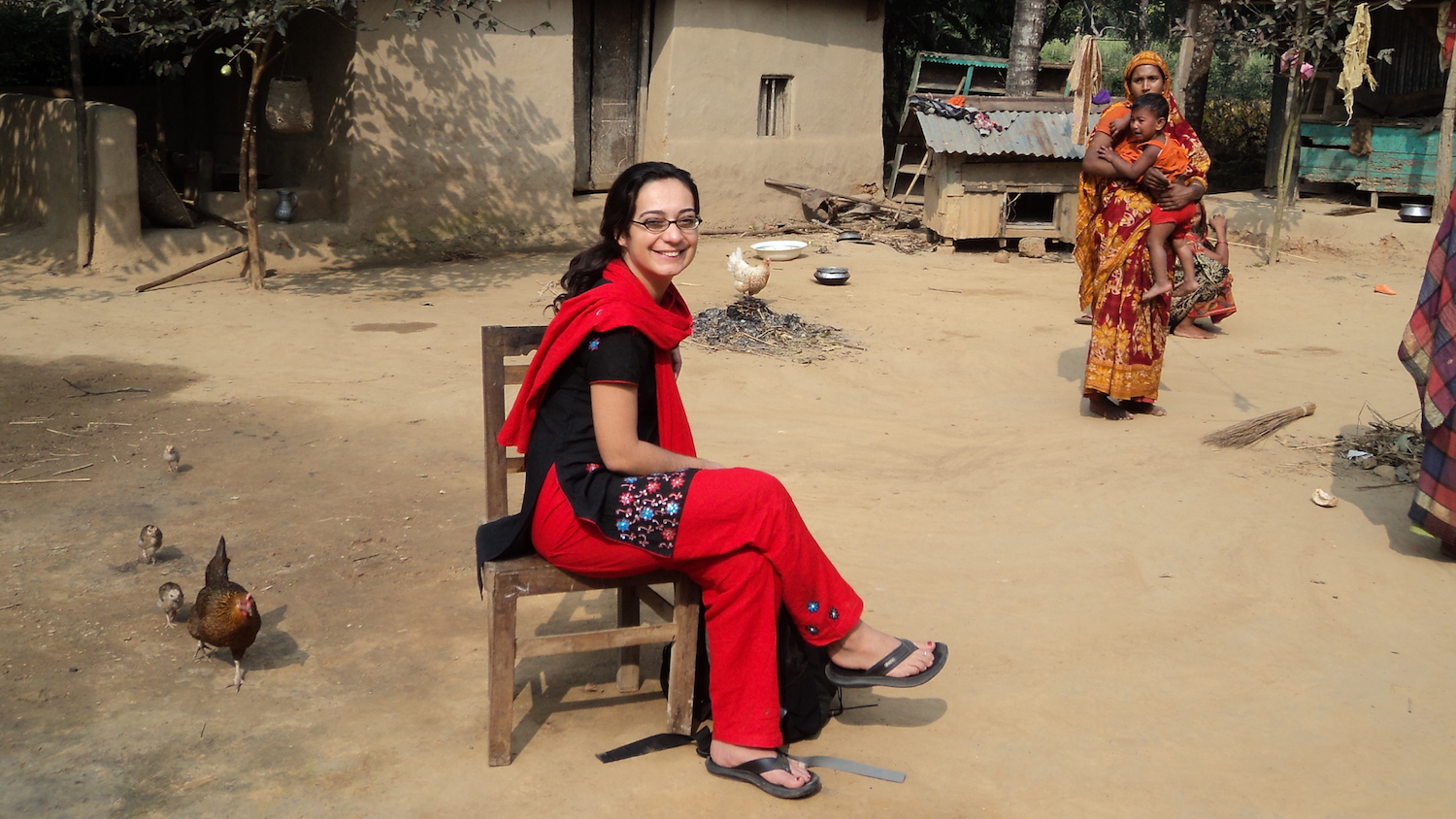Faculty Profile: Ayse Ercumen

Ayse Ercumen is an Assistant Professor in the Department of Forestry and Environmental Resources and core faculty in the Global Water, Sanitation and Hygiene Cluster at North Carolina State University. Her research is focused on environmental disease transmission, and she has conducted epidemiological studies in Bangladesh, India and the US. Dr. Ercumen holds a PhD and MPH from University of California, Berkeley in Epidemiology, and an MS from UC Berkeley and a BS from MIT in Environmental Engineering. Prior to joining NC State, Dr. Ercumen worked as a research scientist at the UC Berkeley School of Public Health. Dr. Ercumen has also held consultant positions at the World Bank Water and Sanitation Program and the International Centre for Diarrhoeal Disease Research, Bangladesh.
1. What do you study?
My work is focused on global environmental health. I study infectious disease transmission through environmental and zoonotic pathways, waterborne infections associated with drinking and recreational water quality, and drivers of antimicrobial resistant infections. I conduct health impact evaluations of environmental interventions, such as water, sanitation and hygiene (WaSH) improvements, and strive to identify innovative approaches to enhance the effectiveness of conventional WaSH programs in reducing environmental disease transmission and improving child health.
2. How did you get in your field?
I’ve always had a passion for environmental quality. After exploring environmental engineering as a career path, I became focused on health and went back to graduate school for a Master’s and PhD in epidemiology. My training in environmental engineering and public health blended seamlessly into a career in the field of environmental health.
3. What is most exciting about your research, and/or what do you hope to achieve with your research?
What motivates my research is identifying solutions to real-world problems and improving health for children in underserved communities around the globe.
4. What led to you becoming a professor at NC State?
I was hired as part of the Chancellor’s Faculty Excellence Program in Global Water, Sanitation and Hygiene. The Global WaSH cluster is a dynamic group of interdisciplinary faculty across campus and was a big draw for me in joining NC State.
5. What was your favorite course to teach?
I love teaching my “Water Quality and Health” course. The course provides an introduction to microbiological and chemical contaminants found in water systems, their health effects and how to detect and remove them. The students really enjoy the material, and we have a lot of lively discussion on domestic and international water quality issues.
6. What advice would you give students interested in your field of study?
Get out there. There is nothing like field research experience to prepare you for a career in environmental health.
- Categories: